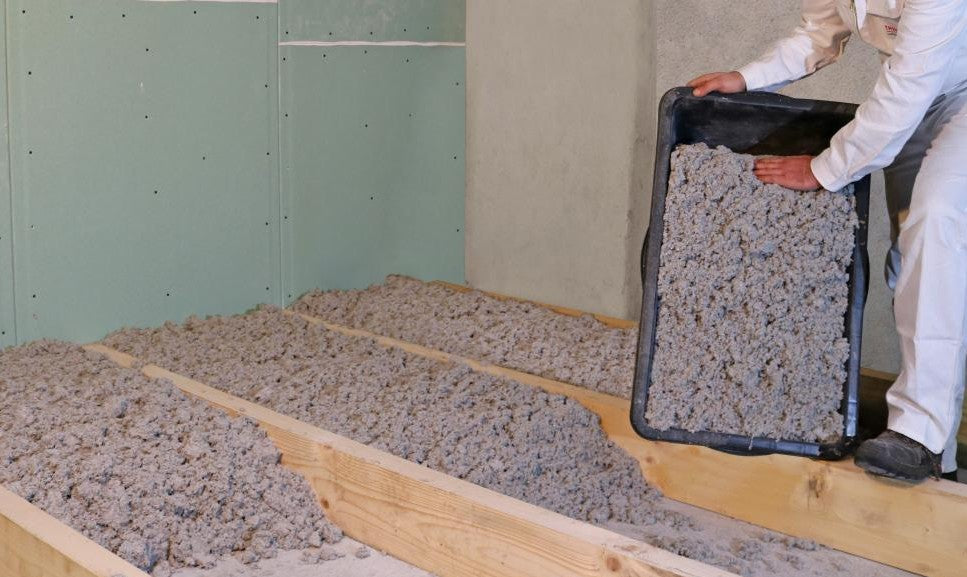
Using Thermal Insulation Granules for Home Flooring
Share
The Smith Family's Living Room
Mr. and Mrs. Smith are renovating their 20 m² living room, which is currently uninsulated and has cold floors. Their goal is to improve the room's energy efficiency and comfort by installing a thermal insulation layer. They have chosen a lightweight, loose-fill thermal granule product, which they will cover with a floating floor system (e.g., chipboard panels) to maintain a solid, level surface. The desired insulation thickness is 100 mm ( cm).
Volume and Material Calculation
The first step is to determine the exact volume of insulation granules needed. The volume is calculated by multiplying the room's length, width, and the desired insulation thickness.
- Room Area: 5m×4m=20m2
- Insulation Thickness: 100mm=0.1m
- Required Volume: 20m2×0.1m=2.0m3
The thermal granules are typically sold in bags, with an average volume of 0.25m3 per bag. To find the total number of bags required, divide the total volume by the bag volume.
- Bags Needed: 2.0m3÷0.25m3=8 bags
- Waste Factor: It's good practice to add a 5-10% waste factor to account for spillage, uneven floors, or future repairs. We will add an additional bag for this.
-
Total Bags: 8 bags+1 bag=9 bags
Cost Breakdown
The total cost is a combination of materials, labor, and other essential components. The following is an estimated cost breakdown based on current market rates.
A. Material Costs
- Thermal Granules: 9 bags×$125 per bag=$1125
- Floating Floor Panels: The panels are laid over the granules. At an average cost of $25 per m2, the total cost would be 20m2×$25=$500
- Vapor Barrier (Plastic Sheeting): A vapor barrier is essential to prevent moisture from the subfloor from affecting the insulation. The cost is approximately $2 per m2, so 20m2×$2=$40
- Adhesive Tape/Screws: For sealing the vapor barrier and securing the panels, a cost of about $50 is a reasonable estimate.
- Total Material Cost: $1125+$500+$40+$50=$1715
B. Labor Costs
Loose-fill Installation: This is a relatively quick process. Professional labor costs typically range from $50 to $70 per hour. Assuming 8 hours of work, the total cost would be 8 hours×$60 (average)=$480
Summary of Costs
- Total Material Cost: $1715
- Total Labor Cost: $480
-
Estimated Project Total: $1715+$480=$2195
Benefits and Considerations
The investment in this floor insulation project provides a significant return in the long term.
- Improved Thermal Performance: The granules provide excellent thermal resistance, creating a warmer floor surface and reducing heat loss. This can lead to a considerable decrease in heating bills.
- Acoustic Dampening: The loose-fill nature of the granules also acts as an effective sound-dampening layer, reducing noise transmission between floors.
- Moisture Resistance: When paired with a proper vapor barrier, this system prevents moisture from reaching the new floor, protecting it from damage.
This case study shows that with careful planning and calculation, a floor insulation project can be a manageable and highly beneficial home improvement. It's a proactive step toward a more comfortable, energy-efficient, and sustainable home.
